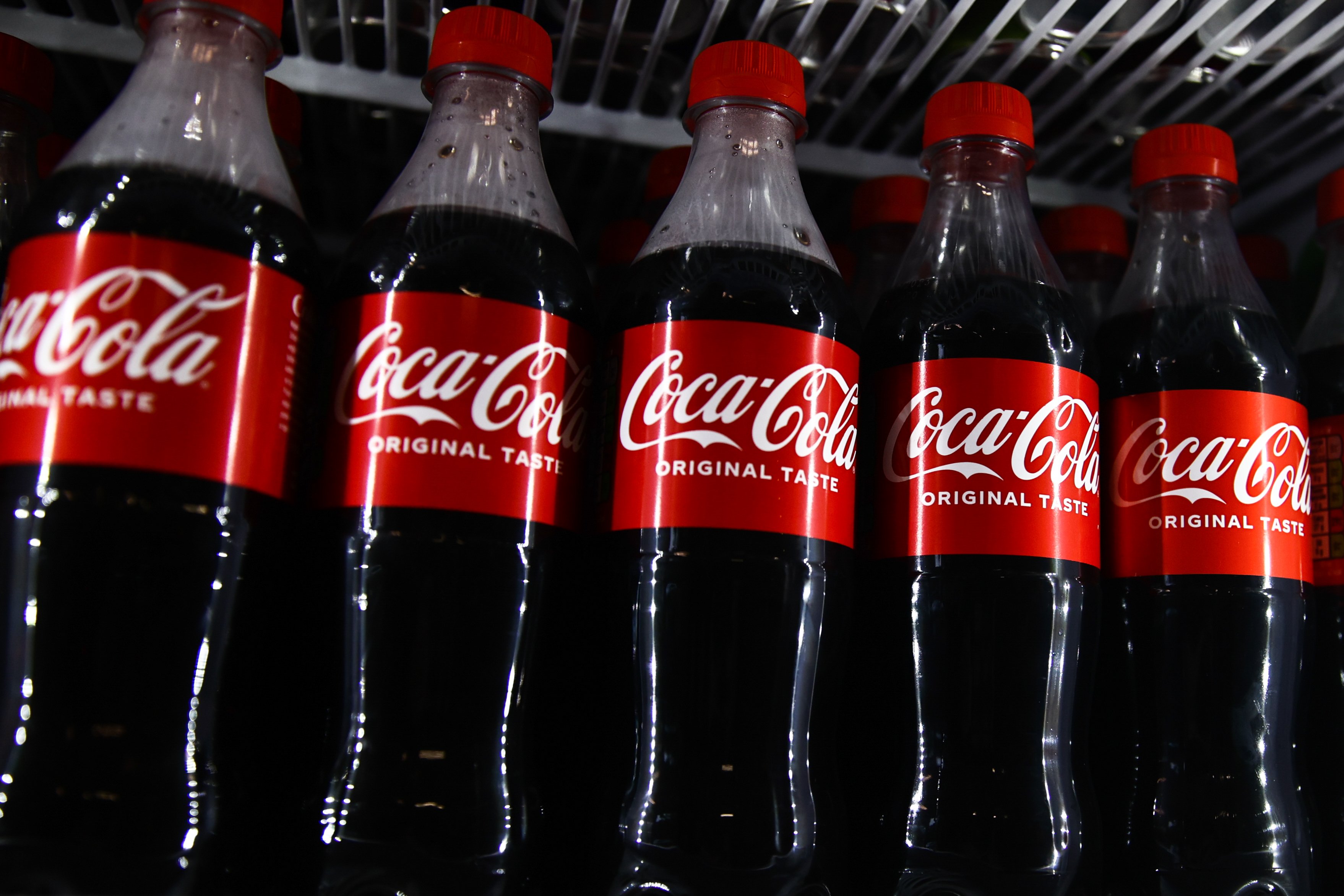The market is in a state of flux today as the world tackles COVID-19. That has investors worried about the future, and focusing on stocks with more conservative business models that can better withstand the volatility of the times. PepsiCo (PEP +2.01%) definitely falls into that category as a consumer staples stock selling snacks and beverages to the world. And its 2.8% yield is higher than the market's, so it's fairly attractive.
But there are attractive dividend stocks with even higher yields available as alternative investments right now. Here are three of them, including an obvious alternative -- Coca-Cola (KO +0.60%).
1. Coca-Cola: The bigger soda seller
If you are considering PepsiCo, the most obvious comparison is Coca-Cola, which offers investors a 3.3% dividend yield today. In fact, Pepsi is the perennial No. 2 to Coke, so in some ways, Coca-Cola is a better option in the drink space. That said, PepsiCo also owns Frito-Lay and a number of packaged food brands, so this isn't exactly an apples-to-apples comparison. For those seeking out a diversified business, PepsiCo is the winner here.
However, if you are a dividend investor looking for a food company with an iconic brand and a No. 1 position in markets around the world, then CocaCola starts to look a lot more interesting.

Image source: Getty Images
Coca-Cola, meanwhile, sees ample opportunity for growth ahead. Although it is the world's leader in the beverage space, it actually has a relatively modest share of the market. That's particularly true in emerging markets, where it expects huge growth opportunities as consumers step up the socioeconomic ladder and start to buy more pre-packed drinks. The path toward growth won't follow a straight line, especially with COVID-19 spreading across the globe, but over time slow and steady growth is likely for Coca-Cola.
Coca-Cola is also a fairly strong company financially speaking. For example, its financial debt-to-equity ratio is a modest 0.2 times or so (roughly in line with PepsiCo's figure). It covers its interest expenses about 30 times over (PepsiCo only manages 11 times). And while its payout ratio is a little high at 76%, that's not materially out of line with its historical payout rates. If you are looking at PepsiCo, CocaCola's higher yield might end up being a better option.
2. Realty Income: Some hard assets
Switching gears completely, you might also want to look at real estate investment trust (REIT) Realty Income (O +1.50%). This company owns single-tenant properties for which its lessees are responsible for most of the operating costs (this is known as a net lease). Although simplifying things a bit, Realty Income basically just has to sit back and collect rent. It pockets the difference between its financing costs and the rents it charges, making it a pretty low-risk way to own property. The stock yields 4.9% today, which is toward the higher end of the REIT's recent history.
Realty Income, meanwhile, has an incredible record of success behind it. The best example is the fact that its dividend has been increased annually for 27 consecutive years as it has grown into one of the largest players in the net lease niche. The dividend in 2019 only ate up about 85% of adjusted funds from operations, which is similar to earnings for an industrial concern. That may sound high, but this is a passive business with long lease terms (the average lease is around 9 years), so that payout ratio isn't really too troubling (especially considering that REITs are required to pay out at least 90% of their taxable income to shareholders).
KO Dividend Yield data by YCharts
The only notable negative today is that Realty Income's lease portfolio is around 85% tied to retail assets. With social distancing and nonessential business closures core to the fight against COVID-19, investors are worried that Realty Income's top and bottom lines will take a hit. That's entirely possible, but with a massive 6,400 property portfolio, long-term leases, and decades of history behind it, it is highly likely that Realty Income muddles through this period and comes out the other side in one piece. If you can handle a modest amount of near-term uncertainty, Realty Income is worth a deep dive.
3. Chevron: A leap of faith
The last name here is global integrated energy giant Chevron (CVX +1.77%), which currently sports a dividend yield of around 6.1%. That's historically high for this company, but for a very good reason -- oil prices are painfully low, and it doesn't look like there's a quick way out of the cellar. In fact, with demand falling because of COVID-19 economic disruptions, oil is getting put in storage. That extra oil will have to be worked off before prices start to move materially higher. This is a terrible backdrop, but Chevron is built to withstand such downturns.
For example, the company has a financial debt-to-equity ratio of just 0.15 times or so, at the low end of the industry (and, honestly, low for any industry). It can lean on its balance sheet to fund growth spending and pay its dividend while oil prices are low. This is exactly what it has done for decades -- note that it has increased its dividend every year for 32 years running. Oil is a commodity that's subject to often swift and dramatic swings; today's downturn is newsworthy, but it isn't really out of the norm. In fact, Chevron's long-term success comes from its focus on long-term supply and demand fundamentals, specifically looking past short term ups and downs.
That said, Chevron is adjusting to the current market by pulling back on capital spending. However, it's important to note that it already had one of the lowest levels of investment, as a percentage of cash flow, in its peer group. So it went into this downturn in a conservative position and is getting even more conservative. In the oil space, Chevron is probably the cleanest dirty shirt. To invest here you need to believe that supply and demand will eventually even out in the oil sector -- but if history is any guide, that's going to happen in time. In the meantime, you can collect a fat dividend yield from a conservatively positioned and financially strong energy company.
A variety of options
If all you are looking for is a higher-yielding alternative to PepsiCo, then the obvious choice is Coca-Cola. However, if you are an income-focused investor, there are a number of solid, high-yield options today, like Realty Income and Chevron. Both are conservatively run relative to their peers, and they have strong businesses with great histories behind them. Even if you end up buying Coca-Cola, you might still want to check them out.










